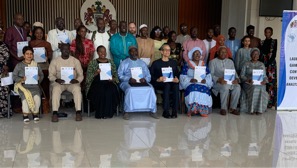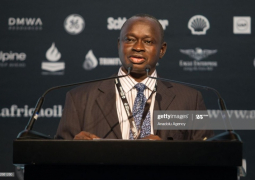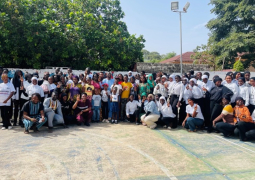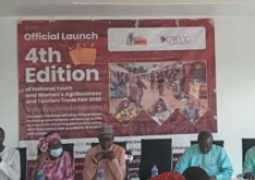
Supported by the United Nations Peacebuilding Fund, UNDP, and the World Bank, the initiative was led by the Gambian Government in collaboration with the West Africa Network for Peacebuilding-The Gambia (WANEP). It seeks to critically assess the evolving dynamics of peace and conflict within the country. It is also designed to provide an updated understanding of conflict drivers and peace engines, fostering national ownership and strengthening pathways for sustained peace.
According to officials, this updated Conflict and Development Analysis 2024 represents a pivotal step in The Gambia's journey towards lasting peace, by revisiting and updating the understanding of conflict dynamics, the CDA provides a valuable tool for policymakers, practitioners, and communities alike.
At the event, Mr. Karl Frederick, United Nations Resident Coordinator in The Gambia, emphasised that the CDA is more than just a document, highlighting that it serves as an evidence-based tool that will aid the government, UN, development partners and Civil Society organisations in assessing, designing, and implementing conflict-sensitive, sustainable, inclusive, and participatory responses to address the internal and external challenges identified in the study.
He expressed optimism that the analysis will foster greater coherence and collaboration across the UN system and with partners, supporting nationally-led efforts to build and sustain peace in The Gambia.
Alieu Loum, Permanent Secretary and Head of the Civil Service representing Secretary General, pointed out that the CDA document belongs to the nation and that no single institution can ensure peace on its own, thus the need for collective responsibility.
The report, he added, had undergone extensive reviews to accurately reflect the issues affecting the people, further underscoring that peace is invaluable and every effort must be made to maintain peace and stability in the country.
Executive Director of WANEP, Salama Njie, made reference to the fact that this extensive national research and consultations were conducted to meaningfully engage a wide range of stakeholders across various sectors.
Those stakeholders, she went on, provided valuable clarity and insight into the challenges faced by different regions and communities, and helped identify pathways to strengthen capacities and platforms for conflict prevention, social cohesion and sustained peace.
She emphasised that the process gave special attention to the different ways in which conflict drivers and peace engines affect men, women, and young people in The Gambia today.
“The analysis serves as a strategic tool for identifying programming priorities to address emerging peace and security challenges, encompassing political, social, economic, and security aspects, with a focus on gender dynamics, cultural factors, and environmental risks.”
Also, she reminded that the analysis considered relevant regional factors that could impact the situation in The Gambia.
The information collected, she added, has been compiled, analysed, and validated, incorporating additional insights and data.




